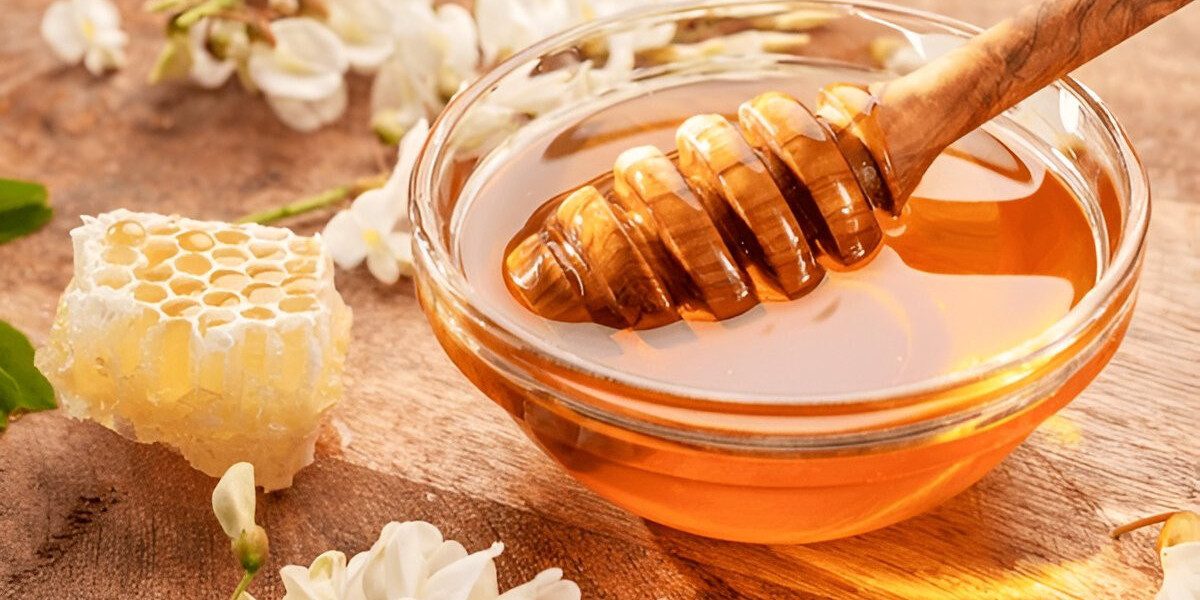Athletes are always on the lookout for better, cleaner ways to fuel their bodies. From protein powders to electrolyte drinks, the options are endless. But now, a growing number of athletes are reaching for something simpler, more natural, and surprisingly effective: honey.
Yes, the golden syrup that’s been sitting in kitchen cabinets for centuries is making a serious comeback — not just as a sweetener but as a performance enhancer. Let’s explore why honey is becoming the go-to natural energy source for athletes around the world.
Why Energy Matters in Sports Performance
Whether you're a marathon runner, a cyclist, a swimmer, or just hitting the gym, energy is the fuel that powers every movement. Without enough energy, endurance fades, performance drops, and recovery slows down.
Our bodies rely on carbohydrates for energy, especially during high-intensity physical activity. The faster and harder you move, the quicker your body depletes its energy stores. That’s why athletes often rely on pre-workout snacks, intra-workout fuel, and post-workout recovery meals — all designed to keep energy levels stable and support peak performance.
But not all energy sources are created equal. Many processed sports supplements contain refined sugars and artificial additives that can lead to energy spikes followed by sudden crashes, digestive discomfort, and long-term health concerns. This is where honey shines — as a natural, clean-burning carbohydrate that supports the body without the crash.
What Makes Honey a Natural Powerhouse?
Honey is far more than just a sweet substance. It’s a complex food made by bees from flower nectar, containing a wide array of beneficial compounds:
Glucose and Fructose: These natural sugars are rapidly absorbed into the bloodstream. Glucose provides quick energy, while fructose offers sustained fuel.
Antioxidants: Honey contains phenolic compounds that combat oxidative stress caused by intense physical activity.
Enzymes: Naturally occurring enzymes in raw honey help support digestion and absorption.
Trace Minerals: Small amounts of potassium, magnesium, calcium, iron, and zinc support muscle function, hydration, and recovery.
Amino Acids: Honey contains minor amounts of amino acids that help in muscle repair.
Together, these nutrients make honey a well-rounded energy source, ideal for athletes seeking both performance and recovery support.
How Honey Helps Boost Athletic Performance
Athletes need energy that kicks in fast and lasts long. Honey delivers on both fronts. Here's how:
Fast Energy Absorption – The glucose in honey is absorbed almost immediately, providing a quick energy spike ideal for pre-workout fuel.
Sustained Stamina – Fructose is metabolized more slowly, giving athletes sustained energy during longer sessions.
Improved Recovery – The anti-inflammatory and antioxidant properties of honey help the body reduce muscle soreness and oxidative damage after exercise.
Digestive Ease – Unlike many commercial gels or bars that contain artificial sweeteners or fillers, honey is gentle on the stomach. This is crucial for endurance athletes who often deal with digestive issues during races.
Honey vs. Energy Gels and Sports Drinks
Commercial energy products are heavily marketed to athletes, but they come with trade-offs. Let’s break down how honey compares:
Feature | Honey | Energy Gels/Drinks |
Source | 100% natural | Synthetic/artificial |
Nutrient Content | Antioxidants, minerals | Limited or none |
Digestion | Gentle on stomach | Can cause discomfort |
Sugar Type | Balanced (glucose + fructose) | Mostly glucose/fructose mix |
Cost | Affordable | Expensive over time |
For athletes focused on clean eating and long-term health, honey is a safer, more natural choice.
When and How Athletes Use Honey
Honey is versatile and easy to integrate into a training routine:
Pre-Workout: A tablespoon of honey 20–30 minutes before exercise can enhance energy and focus.
During Exercise: Mix honey with water and a pinch of salt for a homemade electrolyte drink. Some athletes also use honey packets or honey sticks mid-race.
Post-Workout: Combine honey with protein in a smoothie to aid muscle recovery and replenish glycogen.
Daily Fuel: Add honey to morning meals or snacks to maintain steady energy levels throughout the day.
Backed by Research
The benefits of honey are supported by science. A study by the University of Memphis Exercise and Sports Nutrition Laboratory showed that honey performs as well — or even better — than glucose in improving endurance in athletes. Participants maintained blood sugar levels and completed workouts with more consistent performance when using honey.
Another study published in the Journal of Strength and Conditioning Research highlighted that athletes who consumed honey experienced better post-exercise recovery compared to those who consumed refined sugar.
These results confirm that honey isn’t just a traditional remedy; it’s a scientifically validated sports nutrition supplement.
Best Types of Honey for Athletes
Choosing the right type of honey makes a difference in quality and benefits:
Raw Honey: Unfiltered and unpasteurized, retaining the most nutrients.
Manuka Honey: Sourced from New Zealand, known for high antioxidant and antibacterial content — great for recovery.
Wildflower Honey: Contains diverse plant compounds; a good general-purpose choice.
For athletes who care about purity and performance, brands like Purerawbrands offer clean, high-quality honey options made to support your active lifestyle.
Common Mistakes to Avoid When Using Honey for Energy
Overconsumption: Honey is still high in sugar and calories. Use in moderation to avoid energy crashes or excess calorie intake.
Using Low-Quality Honey: Some store-bought brands contain added corn syrup or are heavily filtered.
Not Pairing with Hydration: Especially during workouts, pair honey with water or electrolytes to support absorption and hydration.
Skipping Balanced Meals: Honey is a supplement, not a replacement for a balanced, nutrient-dense meal plan.
Athletes Who Swear by Honey
Across sports disciplines, professional and amateur athletes alike are turning to honey:
Runners and Cyclists: Use honey as a mid-run/mid-ride fuel due to its convenience and gut-friendliness.
CrossFit Athletes: Add honey to pre-workout meals to boost stamina for high-intensity training.
Yoga and Endurance Enthusiasts: Sip honey water for sustained, non-jittery energy during long sessions.
Its versatility, affordability, and clean label make it a favorite among athletes aiming to perform naturally.
Easy Ways to Add Honey to Your Routine
Incorporating honey doesn’t require a complete lifestyle change. Try these ideas:
Smoothies: Blend honey with fruit, protein powder, and nut milk for a post-workout shake.
Energy Bites: Mix honey with oats, nut butter, and seeds to make homemade snacks.
Breakfast: Drizzle on oatmeal, pancakes, or toast for sustained morning energy.
Hydration Mix: Combine honey, lemon, water, and sea salt for a natural electrolyte drink.
Experiment with timing and amounts to see what works best with your training schedule.
Final Thoughts: Is Honey the Future of Natural Energy?
In an era where clean eating and functional foods are gaining popularity, honey stands out as a time-tested solution. Athletes are discovering — or rediscovering — its ability to support endurance, strength, and recovery without the drawbacks of synthetic products.
Whether you’re a weekend warrior, a competitive athlete, or simply someone who values natural nutrition, honey could be the fuel your fitness routine is missing. It's easy to use, affordable, well-researched, and — most importantly — effective.
Frequently Asked Questions
1. How much honey should an athlete consume before a workout?
One tablespoon (about 21 grams) of honey 30 minutes before exercise is a good starting point for most people.
2. Can honey replace energy gels entirely?
For many athletes, yes. Honey provides a similar energy boost with natural ingredients and fewer additives.
3. Is raw honey better than processed honey for athletes?
Yes. Raw honey retains more antioxidants and nutrients compared to heavily processed versions.
4. Will honey spike blood sugar levels?
Honey can raise blood sugar, but its mix of glucose and fructose results in a more stable increase than pure glucose or sugary drinks.
5. Can athletes with sensitive stomachs use honey?
Yes, honey is generally easier to digest and may be a better option than commercial gels for those with sensitive stomachs.








